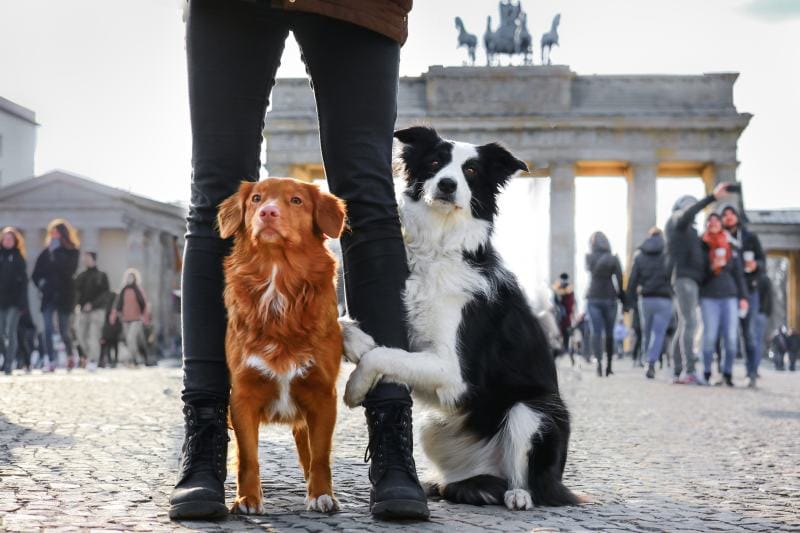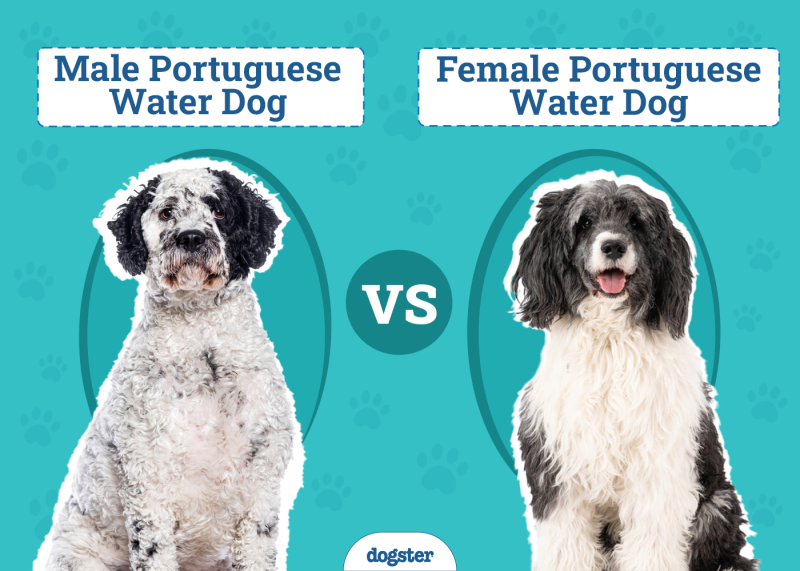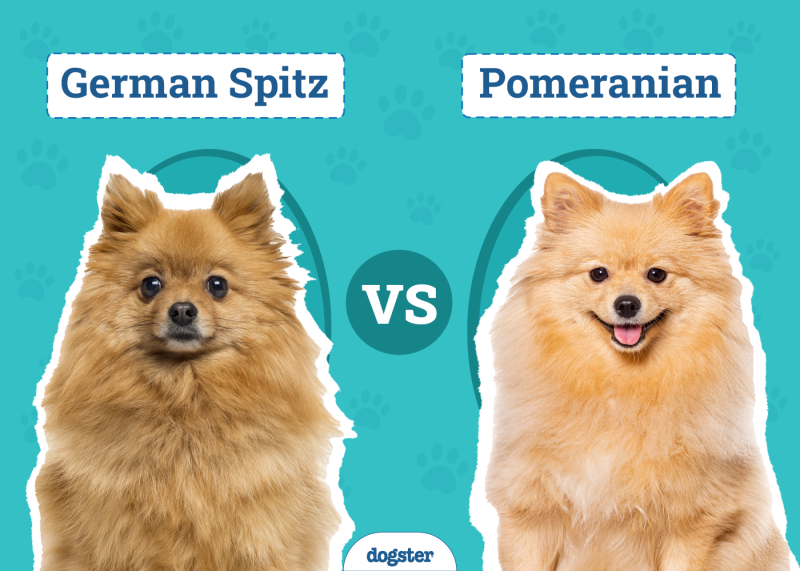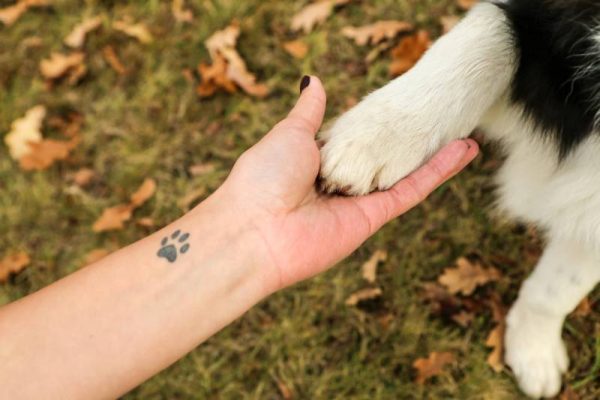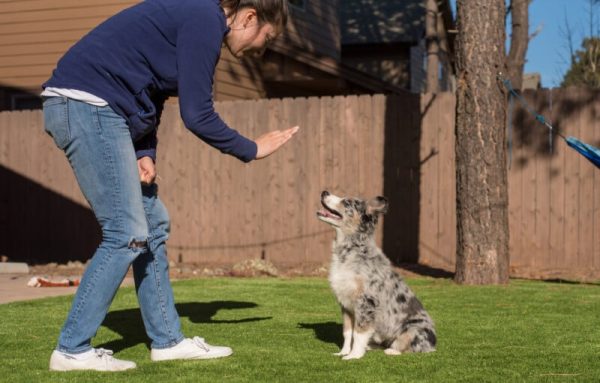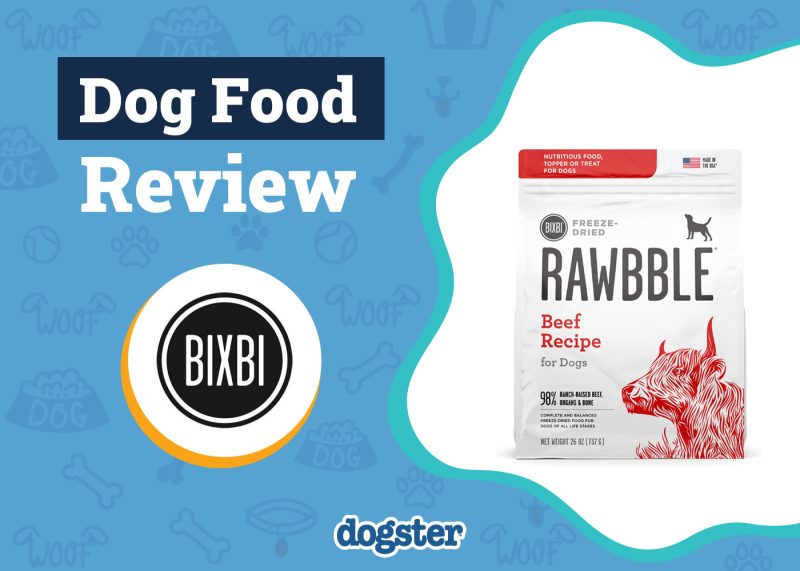In this article
How we relate to animals is often culturally determined, from the creatures we consider companions to what treatment we believe is acceptable. Dogs are popular companions worldwide; there are more than 900 million pet dogs worldwide, and over 10 million reside in Germany.
Dogs are beloved animals in Germany, and the welcome they receive throughout German society largely reflects an attitude of inclusion in which dogs are considered family members. There are few places in Germany where dogs aren’t welcome. Most stores and outdoor spaces are happy for well-behaved dogs to come for a visit.
Dogs often accompany their owners to cafes and restaurants, but most grocery stores prefer well-behaved four-footers to stay outside. While dogs are almost always welcome, Germany also has societal expectations regarding good doggie behavior and socialization.

Dogs Can Go to Restaurants and Stores
Well-behaved dogs are generally welcome at many German restaurants, cafes, bars, and stores. Dogs are almost always permitted to hang out by their favorite human’s side while they’re enjoying a meal or shopping.
Many restaurants are willing to accommodate special requests (such as for quiet tables) from pet parents who call ahead to let establishments know that their pets will accompany them. Some shops even have canine-friendly dishes on the menu to please four-footed guests.
Seeing leashed dogs in German shopping malls and stores is common, but pets are generally prohibited in supermarkets and bakeries. While dogs are sometimes welcome in relatively quiet bars, it’s not uncommon for some proprietors to prohibit canine entry. Bars with lively atmospheres are sometimes off-limits to canines since the atmosphere is not well suited to having dogs around. Most places that don’t welcome dogs post signs outside.
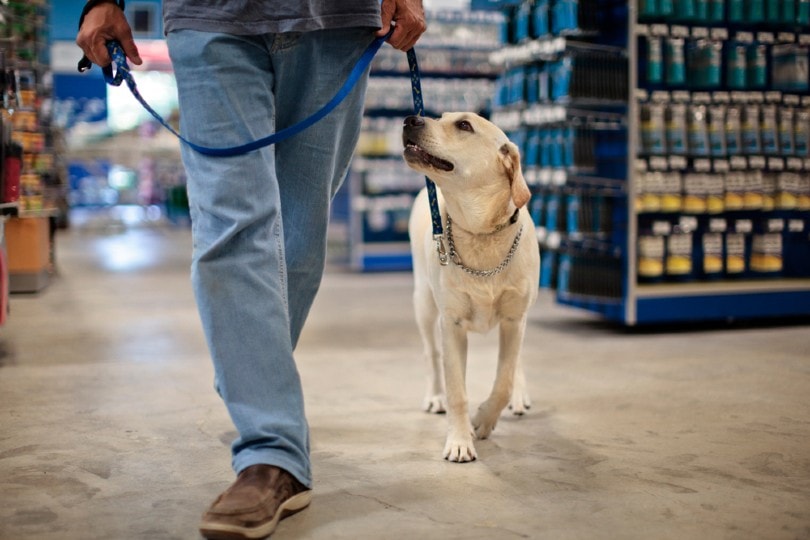
What About Public Transportation?
Dogs can often enjoy public transportation, including in popular tourist destinations such as Berlin. Travelers can take small crated pets on public transportation for free. Larger dogs usually need to be leashed and sometimes muzzled. Some cities allow dogs of any size to travel for free on public transportation, subject to varying requirements. But tickets sometimes need to be purchased for larger dogs. Check the rules before jumping on a bus or tram in a new city with your dog to see if any other requirements apply.
What About Tourist Attractions?
It depends. Dogs are usually unwelcome inside museums, cathedrals, castles, and churches. However, some locations allow pets to enjoy outdoor areas such as gardens and walking paths. Leashed dogs are usually welcome in parks.

Are There Off-Leash Dog Parks in Germany?
Because dogs are considered part of the social fabric of German life, it’s easy to find areas for dogs to enjoy themselves off-leash. Many have water for dogs and benches for humans to rest on while watching their pets. German leash laws are quite strict! So make sure to look up and follow all regulations regarding leashing to avoid getting a costly ticket.
What Are the Most Popular Breeds in Germany?
German Shepherds, Dachshunds, Labrador Retrievers, and Golden Retrievers are popular in Germany. Other commonly seen breeds include German Wirehaired Pointers, Great Danes, Rottweilers, Poodles, Boxers, and Cavalier King Charles Spaniels.

Does Germany Have Regulations Regarding Dog Ownership?
Yes. But first, it may help to learn more about how the German government is set up. Germany is a federal republic, so there are national and state-wide legislative bodies. The federal government and each of Germany’s constituent states can make laws that apply to dogs. The rules vary from place to place because the states have the authority to regulate dog ownership.
Dogs in Germany must be registered, and owners must pay a hefty dog tax. The amount varies based on the breed and location, but it can reach as high as €150. Most states charge higher fees for each additional dog per owner, and some tax “dangerous” breeds at higher rates. Many jurisdictions require dog owners to obtain liability insurance that covers third-party injuries. Insurance requirements differ by state and breed.
While dogs are often welcome in German hotels, shops, and restaurants, social expectations regarding acceptable canine behavior are high. Dogs must have mastered basic obedience skills before heading to restaurants, cafes, and shopping malls.
Are There Other Regulations to Be Aware of When Bringing My Dog to Germany?
Yes, but those regulations vary depending on where you live. Germany requires dogs to be microchipped and fully vaccinated against rabies. Dogs also need a health certificate, but the approval process varies based on your location.
If you’re traveling from the US, you’ll need to find a USDA-approved local veterinarian to conduct the health exam, update any vaccinations, and then send the completed paperwork to the USDA for endorsement. Health exams must be conducted within 30 days of traveling to the EU. EU regulations require USDA endorsements to have been obtained no more than 10 days before arrival.
Dogs entering Germany from outside the EU must be vaccinated against rabies, but there are strict requirements regarding timing and identification. Pets must be vaccinated after being microchipped, which can present problems for some dogs with non-ISO-compliant microchips. Pets coming from some countries need blood tests showing they’re rabies-free.
Start the process at least 2 or 3 months before you plan to travel to ensure you have enough time to get your dog’s paperwork in order. Ensure your pet’s microchip is ISO-compliant so it can be decoded by the readers most commonly used in the EU.
Not all breeds are welcome in Germany. Pit Bull Terriers, Staffordshire Bull Terriers, Bull Terriers, and American Staffordshire Terriers can’t be legally brought into the country, but there are several exceptions, including for guide dogs.

Conclusion
German society is highly pet-friendly! Dogs are generally welcome in hotels, shopping malls, stores, restaurants, cafes, and even bars. However, even well-behaved dogs aren’t allowed in supermarkets and most bakeries.
Museums, castles, and other cultural sites are also usually off-limits to dogs, but many allow pets to enjoy outdoor areas such as gardens and walkways. Dogs are almost always welcome on public transportation, although some systems require pet parents to purchase tickets for their canine companions. Canines are primarily treated as integral parts of the social fabric in Germany.
Featured Image Credit: Zuzanna Paluch, Shutterstock
